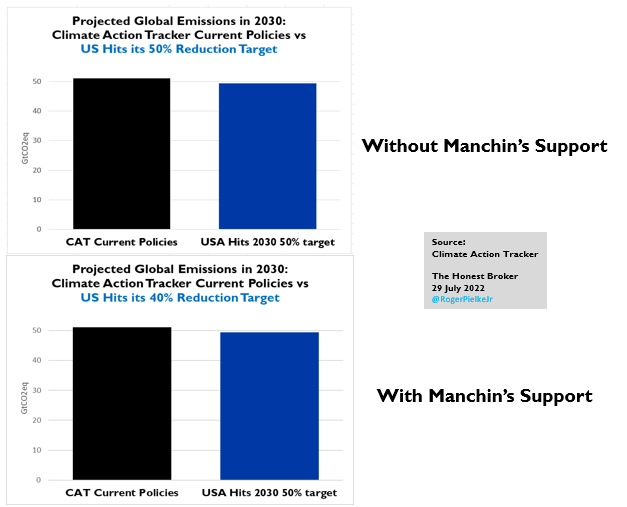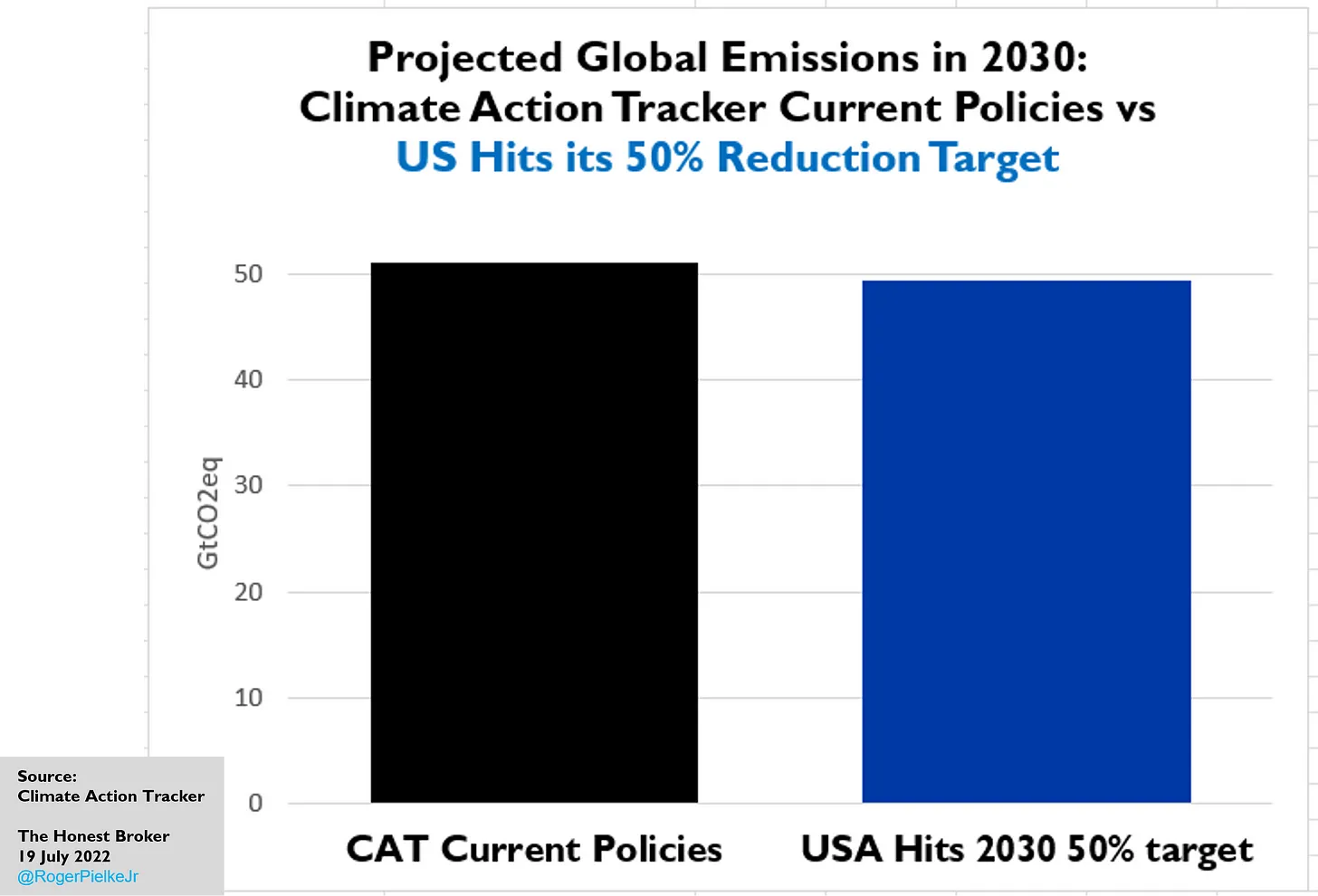What about its impact on climate change? Roger Pielke ran the numbers and found that, even if it achieved Biden’s 50% emissions-reduction target for 2030, which it almost certainly won’t, the impact on overall global emissions would be nearly unmeasurable.
“In fact, that small level of emissions impact is well within both emissions measurement error as well as the large uncertainty in how emissions-policies will evolve to 2030,” notes Pielke.
#
https://rogerpielkejr.substack.com/p/weekend-reading-5 (Subscription required)
Dr. Roger Pielke Jr.: I was curious what impact on emissions there might be as a result of Senator Joe Manchin’s (D-WV) refusal to support President Biden’s legislative climate package. Below I present my analysis.I was curious what impact on emissions there might be as a result of Senator Joe Manchin’s (D-WV) refusal to support President Biden’s legislative climate package. Below I present my analysis.I was curious what impact on emissions there might be as a result of Senator Joe Manchin’s (D-WV) refusal to support President Biden’s legislative climate package. Below I present my analysis.
#
https://rogerpielkejr.substack.com/p/weekend-reading-6
Pielke Jr.: Senator Manchin has apparently changed his mind on supporting climate provisions in congressional legislation. Senator Tina Smith (D-MN) said of the reversal, “this is a big F-ing deal!’ … [The] most significant action on climate and clean energy we’ve ever taken.”
Around here we run the numbers. The figure below shows the difference in 2030 between (black bars) global emissions assuming “current policies” (actually, as of November 2021 by the Climate Action Tracker), and the blue bars showing (top) President Biden’s 50% emissions reduction target for 2030 and (bottom) the 40% reduction Democrats announced with Senator Manchin’s support.
If you have a hard time spotting the difference, that is understandable — the difference is 0.4 Gt carbon dioxide-eq in 2030 out of a global total of ~50 Gt carbon dioxide-eq. As I have often said, every little bit helps, but the planet won’t be saved or lost on one U.S. climate bill. The totalizing, apocalyptic characterizations are satisfying for some, I suppose, but the reality of the challenge of decarbonization is incremental, step-by-step. And this is a small step, at best.

#
Update ;Dr. Roger Pielke Jr. challenges supporters of the bill:
Pielke Jr.: I’m putting forward a straightforward challenge to climate hawks who argue that the IRA will dramatically accelerate overall U.S. emissions reductions by 2030. A co-author of the IRA, Senator Chuck Schumer (D-NY), asserts that the legislation will lead to a 40% reduction in emissions from 2005 levels over the next 7 years, compared to a 24% reduction without the legislation. As they say — Big, if true.
Here is the challenge to climate hawks: With respect to carbon dioxide emissions — the single largest contributor to greenhouse gas forcing and the central focus of proposals to achieve net-zero emissions by 2050 — I simply do not see how the IRA actually reduces emissions. I invite climate hawks to present the case in terms of specific policy mechanics and resulting causality for how the legislation will reduce carbon dioxide emissions. Because I’m not seeing it. I will be happy to publish the best responses here in a subsequent post.
Biden's CO2 goals meaningless
"Roger Pielke ran the numbers and found that, even if it achieved Biden’s 50% emissions-reduction target for 2030, which it almost certainly won’t, the impact on overall global emissions would be nearly unmeasurable."https://t.co/JNAf0yFYmj pic.twitter.com/U2X5Z0qjDq
— Marc Morano (@ClimateDepot) July 28, 2022





